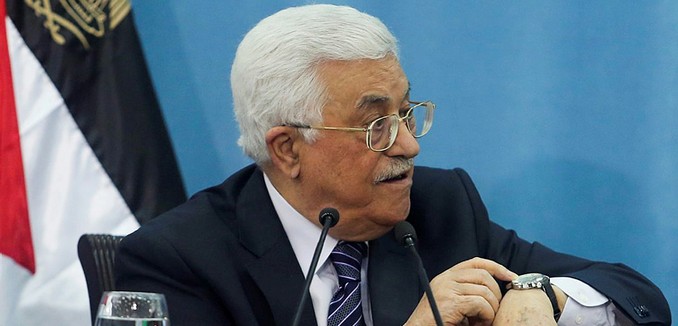Palestinian Authority President Mahmoud Abbas has many compelling reasons not to achieve statehood, which may explain why peace negotiations have failed, Gadi Taub argued in a Haaretz op-ed Thursday.
Taub was prompted to examine why Abbas doesn’t seem to be taking the steps necessary to “liberate his people from Israeli military control and be free to rebuild their national life” after a Palestinian journalist recently asked him, “What makes you think we will let you leave the territories? Who will protect us?”
Taub pointed out that in order to make a peace deal with Israel, Abbas would have to give up the “right of return” for Palestinian refugees and their descendants. But it would be very difficult for Abbas to do that without losing his credibility “after swearing allegiance to this right so many times, and after immortalizing the refugee problem for three generations with the help of the United Nations Relief and Works Agency.”
Additionally, if Abbas thought that peace would lead to improved human rights for Palestinians, independence may not be an easy answer: “the Palestinian Preventive Security force isn’t exactly Amnesty International and it isn’t clear it will abuse those rights any less.”
Abbas might prefer to have Israel protecting his rule in the West Bank from a Hamas takeover (as occurred in Gaza in 2007) rather than being forced to fight his own people to maintain control. Abbas is able to declare “that it will never stop the struggle for liberation from Zionist colonialism” while benefiting from Israeli protection. Absent the Israeli presence in the West Bank, PA leaders would lose both the personal security the links with Israel provide, as well as a rallying point to demonstrate their relevance.
Taub also noted that Abbas’ chief concern with ending the Israeli occupation would be the questionable viability of a Palestinian state. A nascent Palestinian state “with institutions that have not been groomed for nation-building and with a shaky economy that’s dependent on others … would not be a particularly safe bet.” The only buffer between a weak Palestinian state and ISIS would be Jordan, which is currently burdened with a huge refugee population.
Finally, accepting responsibility for his own state would end Israeli occupation and the resulting diplomatic and political problems that result from it. The end of occupation would be “a gift” to Israel that “the PA won’t be too happy to give.”
Given these considerations, Taub asked, “Why should Abbas exchange victimhood for an uncertain future that is liable to have an even higher toll of victims?”
Abbas’ history suggests that he, in fact, has little interest in creating a Palestinian state. Last November, Abbas admitted publicly for the first time that he had rejected a peace agreement offered by then-Israeli Prime Minister Ehud Olmert. He also was identified by former Israeli peace negotiator Tzipi Livni as the party most responsible for torpedoing the American-sponsored peace talks two years ago.
[Photo: Flash90 ]




